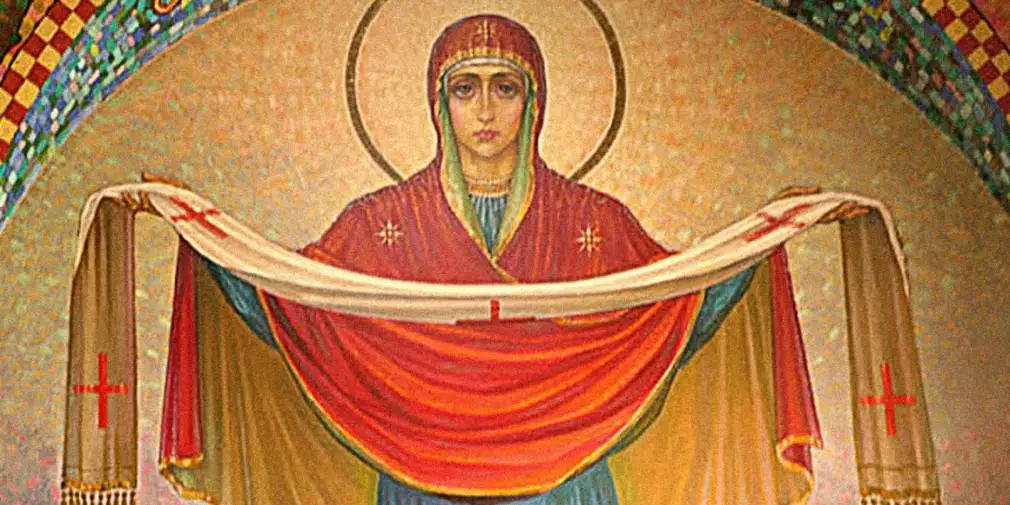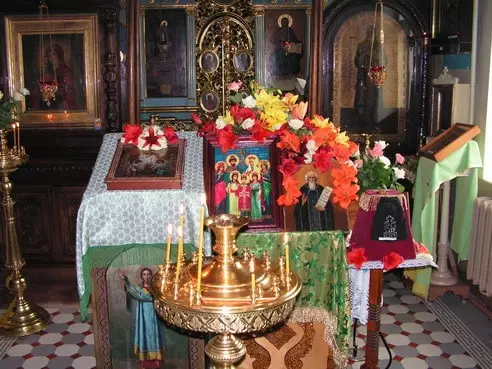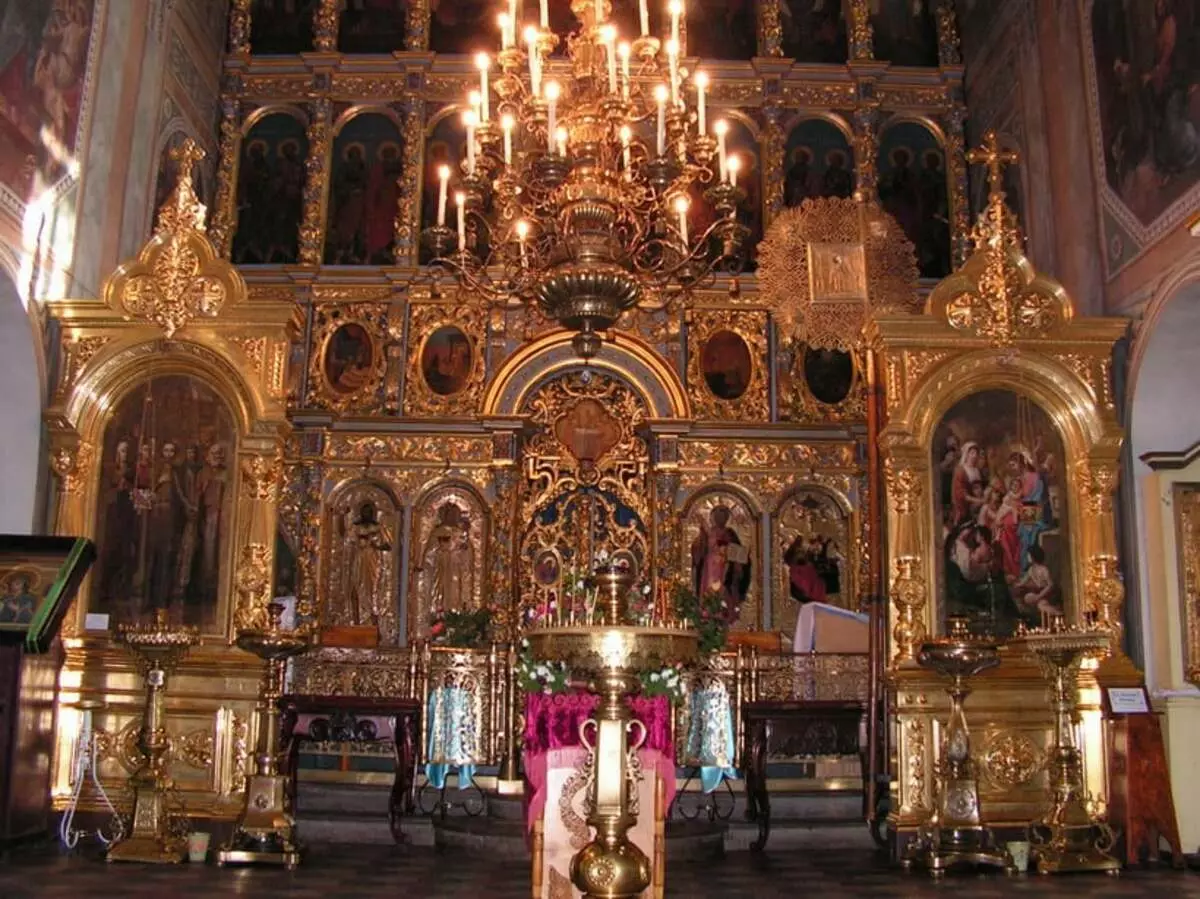Our family was never Orthodox in the traditional sense of the word. We are all - Mom, Dad, I and Brother were baptized, sometimes visited the church, but I only remember Easter from all church holidays.
When I became older, I learned that my grandmother sometimes keeps dear days and did not eat meat because of health problems or for some similar reasons, as I always thought, but because I observe the post. In my youth, it was not particularly interested in me, I wrote everything to the strange eccentrics beloved Gabli and find out what the days of the post did not become.
When the grandmothers did not become, Mom was fascinated by the posts. In addition, over time it turned out that the church posts began to observe many of my friends, and such compliance was, one can say a certain fashion trend that gradually entered the use.
And I also became interested - what is the post, which Orthodox posts are that they differ from each other when begin and end. And most importantly - why do people observe them? What is the strange desire to limit yourself and what is his meaning?
Find out what awaits you today - a horoscope for today for all zodiac signs
This is really a very interesting topic, and it is necessary to understand it thoughtfully. Let's try to do it together.

What is an Orthodox post and what is its meaning
Church post is a refusal for a certain time from meat food (it is considered "rapid") in order to eradicate any destructive manifestation. In fact, it is abstaining from food, sometimes even complete.By numerous requests of readers, we have prepared an application "Orthodox calendar" for a smartphone. Every morning you will receive information about the current day: Holidays, posts, commemoration days, prayers, parables.
Download free: Orthodox calendar 2020 (Available on Android)
The main goal of the post is one - the salvation of the soul. Moreover, the post can be both bodily (this is just abstaining from food) and spiritual (this post consists of a refusal of some fun or entertainment, as well as in solitude).
Each religion adopted observance of posts, but the most serious and long-term of them are welcome in Christianity and Islam. Catholics, as well as adherents of the Anglican Church, the posts are much less significant.
As the religious dogmas say, the post (both bodily and spiritual) has several values:
- repentance (as a disclaimer for sins);
- petition (as an opportunity to turn to God with a request for something);
- Imitation of Jesus Christ (in this case, we are talking about a great post, which lasts 40 days, because it was just such a period of time that Jesus fasted in the desert);
- ascetic, that is, exemption from passions;
- Post for cleansing to church holidays.
As you can see, the rejection of food is considered valuable in itself, but to achieve any goals or even as a pay for already committed or future sins.
Six degrees post
Posts, as we have already said, are different, and in accordance with this there are so-called degrees of post. There are strict, you can say ascetic posts, and there are quite simple, which is easy to observe even an unprepared person.
All such degrees of "complexity" six:
- Full refusal only from products containing meat, any others are allowed and not prohibited;
- Eggs, meat and all dairy products are prohibited, but it is not forbidden to eat fish and fish products, as well as any vegetable cuisine - porridge, salads, etc.);
- No products from the above are not allowed, but it is quite possible to eat porridge, salads, fruit - classic vegetarian cuisine. You can also refill salads with vegetable oil and drink wine;
- Next begins the failure and oil with wine. Actually remain cereal and salads without adding oil;
- Dry food. Bread, water, dried fruits, nuts;
- And finally, a complete rejection of food and water. This is the most strict post. In fact, only this is called "post" in the literal sense of the word. All the rest is more suitable, in my opinion, the word "diet", but there is no such thing in religion.
By the way, the church demands that people talked themselves to the posts gradually, because it is forbidden to damage their health, well, or at least - extremely undesirable. And in general, the church always requires moderation and abstinence - in everything. Compliance with posts is also concerned.
Title posts church calendar
The posts are very different as long enough (as we have already said, the Great Post continues 40 days), and very short, one day that is called "weekly".
The most multi-day post is, of course, just great. This post is also called the Holy Fourth, because it is so much Jesus in the Jewish desert.
Name the date of the beginning of the Great Post is difficult, because its beginning depends on Easter, which has no specific date. Starting at midnight of the day, on which Easter fell, the great post continues exactly forty days, and then immediately followed by the "Week of suffering" - passionate saddemic. Thus, whenever the great post started - it always continues exactly 48 days. He ends also at midnight the last for a week of suffering, which includes the days of the crucifix, death and burial of Jesus Christ.
Another post, which is devoted to the Holy Apostles Peter and Paul, more precisely, their preaching and death. Hears the name of Petrov post. This post begins exactly a week after the Trinity.
In turn, the Holy Trinity is celebrated exactly after fifty days after Easter, and therefore this holiday is also called Pentecost. This is a week after this holiday and until July 12, Petrov's post continues.
The Assumption post dedicated to the Mother of God continues from 14 to 28 August, and Christmas begins on November 28 and ends, respectively, for Christmas, that is, at midnight January 7th.
As for the weekly posts, they traditionally take each Wednesday and Friday.

Start and end time
Posts have a calendar character, begin and end at midnight. When it starts and when the post end, with what number it is specifically, you can not always say, because every year Easter falls on different days, and that is why Petrov's duration can be different as the start date of the post. It is easier to say how long the post continues, that is, the post time.If calculated, then on average a year of about 200 lean days, depending on the duration of Petrov's post. Sometimes it happens slightly smaller, sometimes more. Almost half of the days a year, or even more, falls on the post.
What is meatseeds
There are those periods of time on church laws when people are allowed to eat meat. Such periods are usually confined to the end of some post, and they are called meat.
As can be seen from the analysis of posts, they fall on spring, summer, autumn and winter. The great post, the longest, begins in the spring, then Petrov is replaced by Petrov, who ends in July, after it is closer to the autumn, the Assumption post begins, and, finally, closer to the beginning of winter it follows the post of Christmas.
Starting from Christmas and until the first day of Easter, only weekly posts on Wednesdays and Fridays should be observed.
Accordingly, the meaties are also spring, summer, autumn and winter.
In the spring, in accordance with the rules of the Church, meat products can be eaten between the end of the Great Post and before the start of Petrov.
After July 12, when Potrov's post ends, to the most Assumption post, that is, until August 14, you can also use both meat and dairy products.
Assumption post ends on August 28, and three months after him, that is, until November 28, when the Christmas post begins, there are also no restrictions on the reception of meat food. From November 28 to January 7, there is meat and fish is prohibited.
And after January 7 to the Easter itself, there are also no restrictions on the reception of any food.
It should be remembered that if you are 40 days, and even longer, they are fed on salads and fruits, you can not literally the next day after the end of the post is to throw on the fried pork, no matter how much you want it. This is not just harmful to the stomach, but may have the saddest effects.
No wonder in Tsarist Russia, when posts, especially in the village, were observed strictly, child mortality raised precisely during meatons. After one and a half minute fasting, eating even boiled eggs can become deadly.
By the way, as for Fridays and environments, that is, those days when it is customary to fast, an exception is made during meaties for such days. That is, in the summer and autumn it is impossible to eat meat and fish, but in the spring and winter it is possible. Still, some relaxation, taking into account the difficulty of starvation in winter, the church of the people gave. In the summer, survive "hungry" days are much easier than in winter.
There is still the so-called "omnivorous week" - these are days that begin two weeks before Easter. During this time, you can boldly have any products and do not comply with any lean days, even those called weekly posts.
Obviously, in this way the body is preparing in a long great post. Still, almost fifty days spend actually without animal proteins for those people who are not vegetarians, it is quite difficult.
Winter meatseed was a real holiday for the peasants in Russian villages, because it was later that the cattle was scored and in peasant families on the table finally appeared meat.

Conclusion
So, the main thing I came to, starting to study posts on the church calendar, comes down to the following:
- The post is always an attempt to eradicate some negative human qualities, such as malice, irritability, angiveness, envy. It is always an attempt to reconcile himself with the world and aware of his place in it;
- Any post is a very serious test, and as any test, it needs to be prepared, try to be moderate. You can bring yourself more harm than the benefit if you start following the church canons thoughtlessly. The decision to comply with the post must be coming prepared;
- The post should be directly connected to the soul, otherwise it will not be an attempt of enlightenment, but an ordinary diet, that is, something worldly, which the church is trying to avoid;
- The church calls to clean not only the soul, but also the body. It is for this that you need to strive, humming your flesh. It is for this that all sermons are directed.
